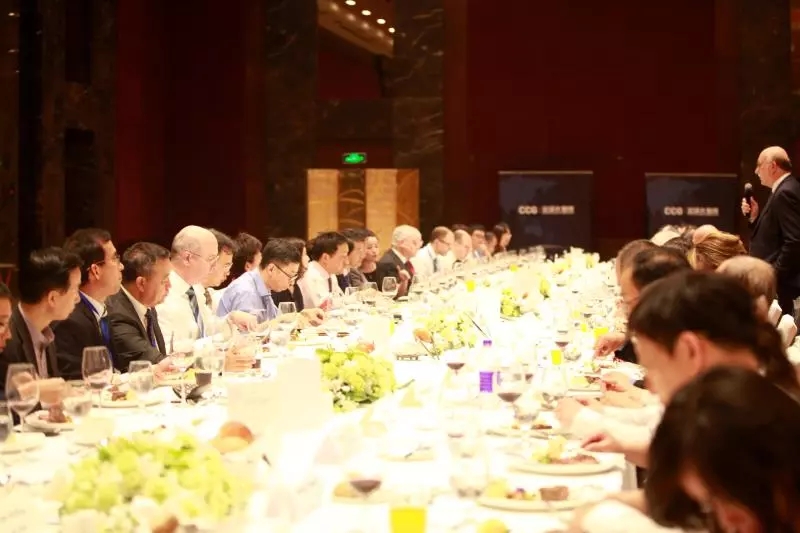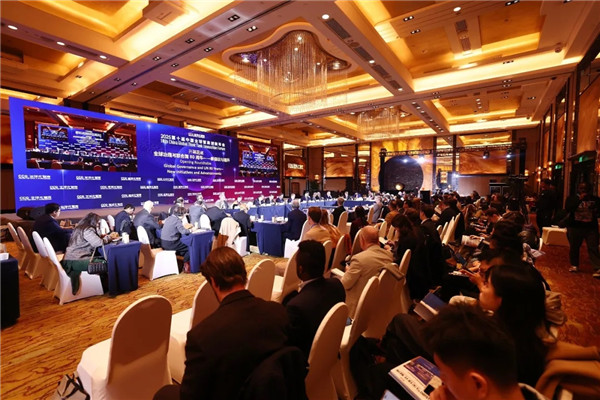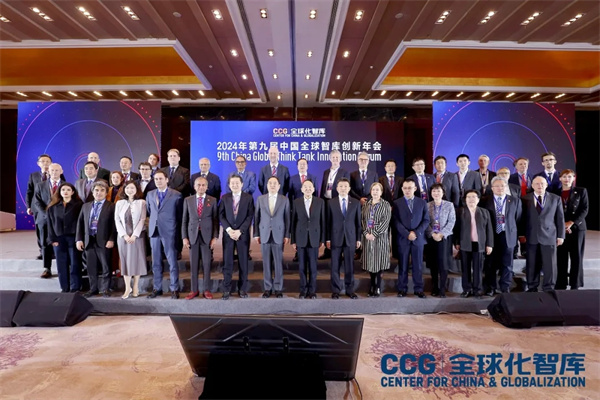2018 Annual China Global Think Tank Innovation Forum
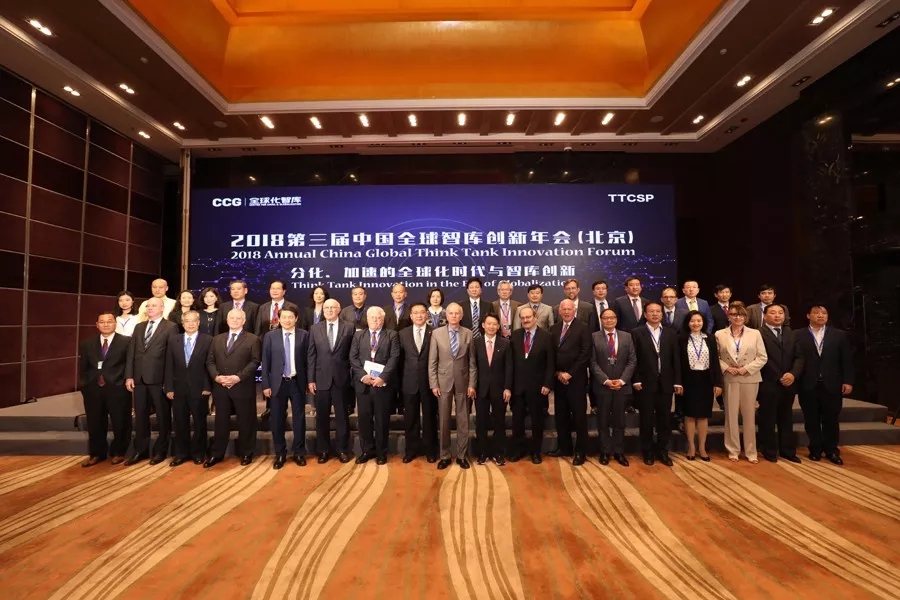
In an ever-more globalized world where technology and politics drive rapid changes, think tanks can play an invaluable role in contributing towards sustainable, balanced global development and harmonious cross-border relations. In recent years, think tanks have been proliferating in Asia. China, in particular, has the right conditions for these institutions to grow and play a larger role in society.
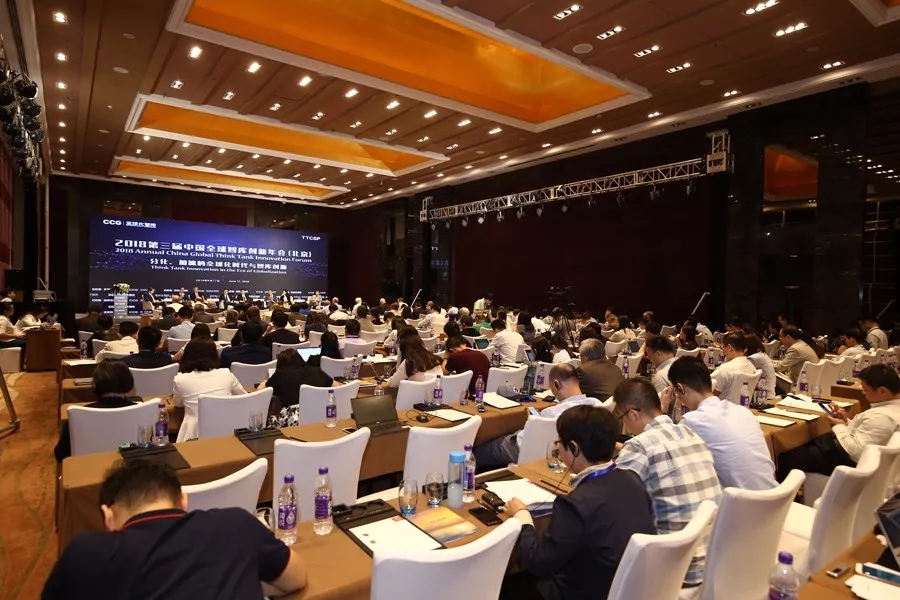
To support the healthy development of think tanks and discuss pressing challenges that think tanks face, on June 17, over 200 leading experts from the international think tank community gathered in Beijing for the Annual China Think Tank Innovation Forum. This year’s forum, the third to date, took the theme of “think tank innovation in a globalized era of acceleration and differentiation.” The event was co-hosted by CCG and the University of Pennsylvania’s Think Tank and Civil Society Program (TTCSP), in partnership with Shanghai Social Sciences Academy’s Center for Think Tank Studies and Nanjing University’s Center for Chinese Think Tank Research and Assessment.
Opening session: Setting the scene
The opening session, chaired by CCG President Dr. Wang Huiyao and TTCSP Director James G. McGann, featured speeches from senior officials that set a broad context for the day’s discussions and identified key issues for think tank development.
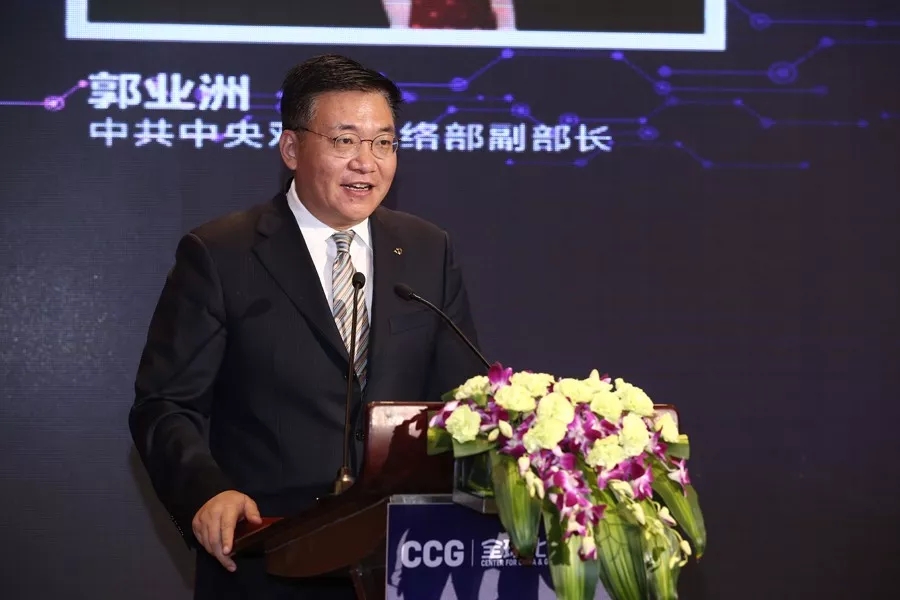
Guo Yezhou, vice minister of the CPC Central Committee International Department, highlighted the multiple roles that think tanks can play as important components of the global governance system, protectors of world peace, promotors of new industrial breakthroughs, and as platforms for cultural exchange and sharing of experiences.
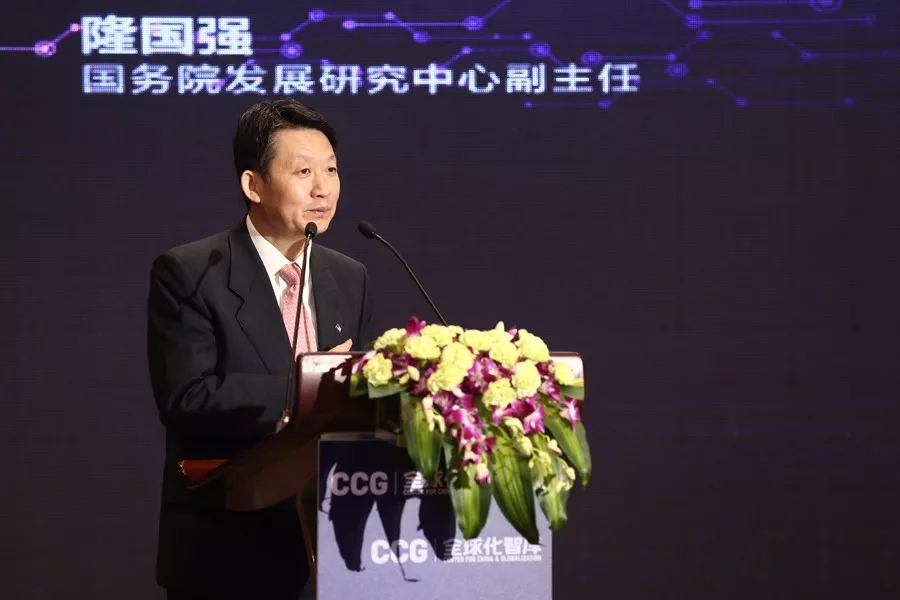
Long Guoqiang, deputy director of the State Council’s Development Research Center, emphasized the role of this annual forum as an effective platform for dialogue in the international think tank community. He outlined three dimensions for think tanks to focus on, namely, technological progress, global governance systems, and evolving great-power relations in a changing global economy.
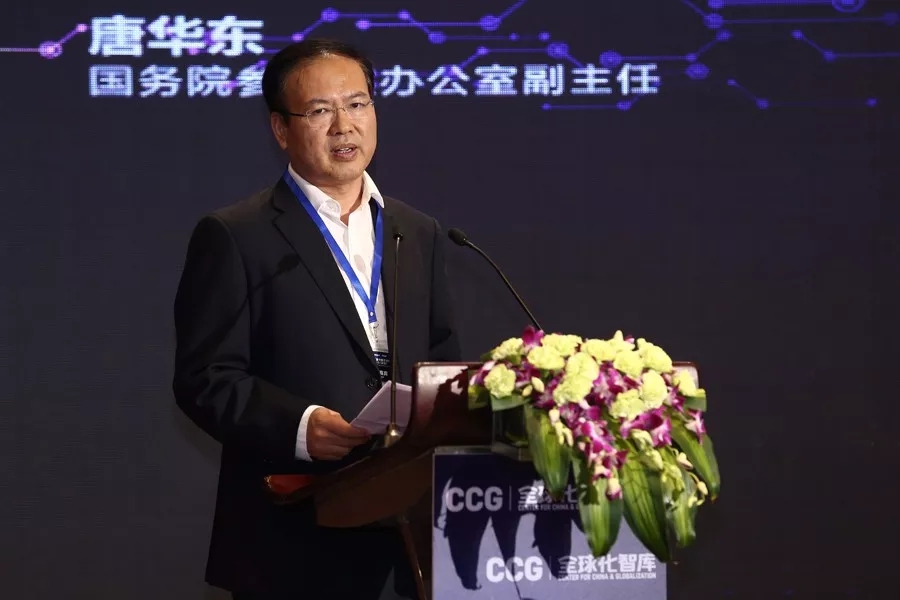
Tang Huadong, deputy director of the Counsellors Office of the State Council, stressed that think tanks must strive to innovate and diversify funding channels while adhering to their sense of mission and responsibility in the course of development and expansion.
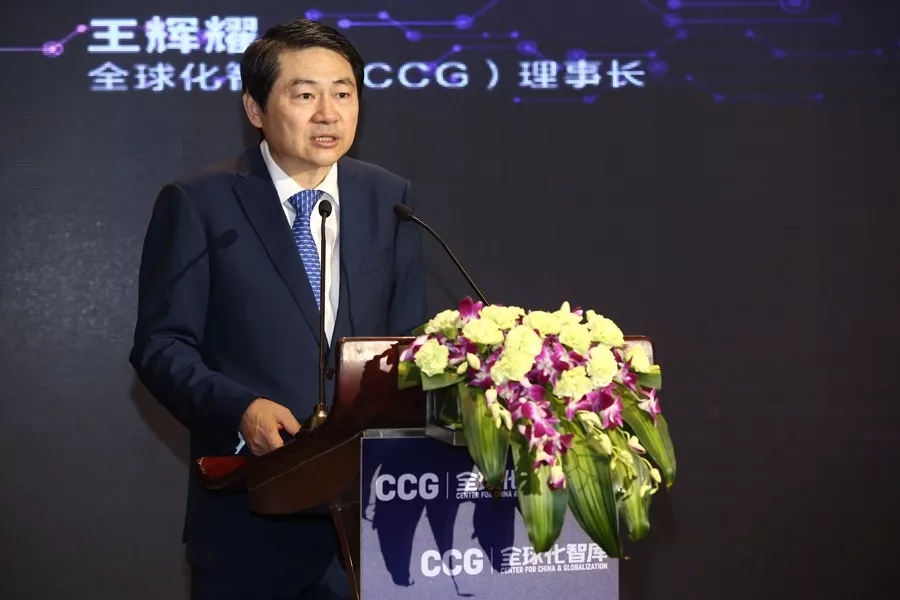
Wang Huiyao expressed thanks to the participants for their attendance, reflecting on the significance of so many thought leaders in think tank development gathering together to share ideas at the dawn of a new chapter for Chinese think tank development.
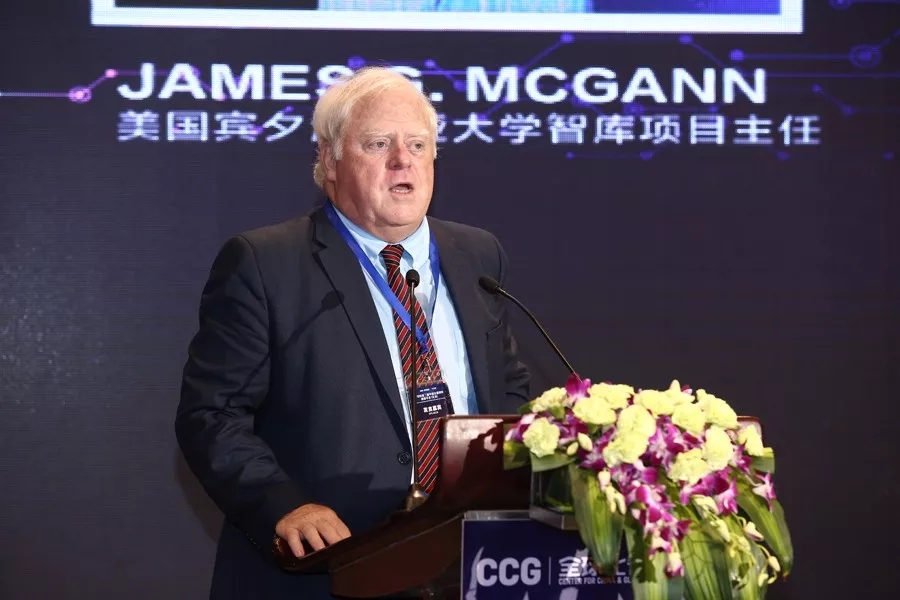
James G. McGann also recognized the value of the forum as an opportunity for interaction among the international think tank community, particularly at such a critical juncture in Sino-US relations. He said that the event helped strengthen US-China cooperation and further built on the partnership between TTCSP and CCG. McGann added that think tanks are facing new challenges from policy shocks and accelerated information flows, challenges that can be met by leveraging new communications technologies.
Session one: Think tank innovation in the new era of globalization
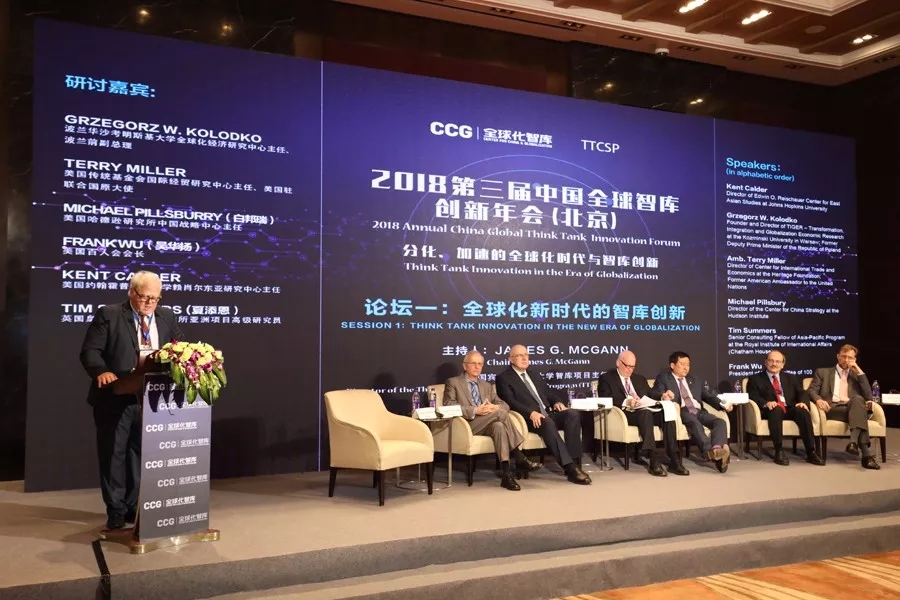

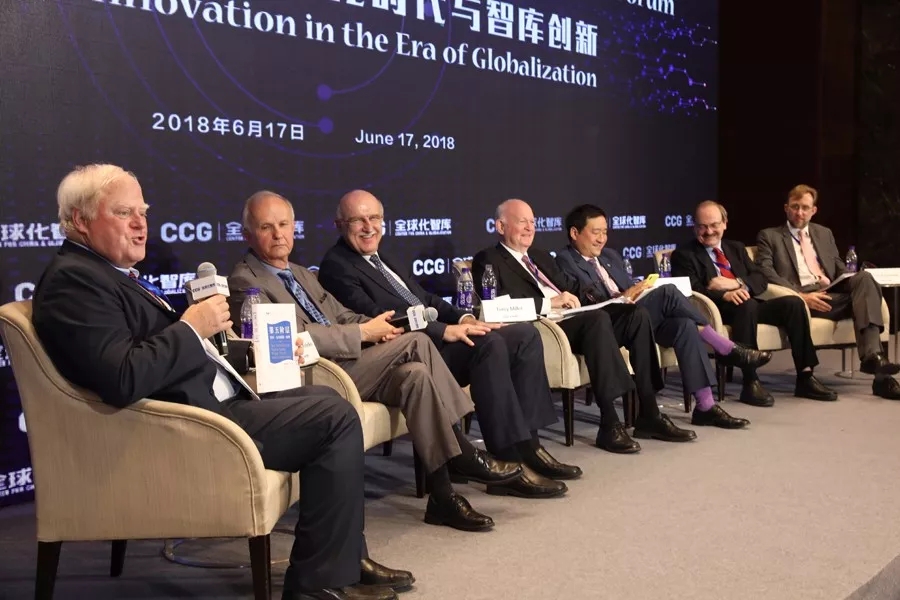
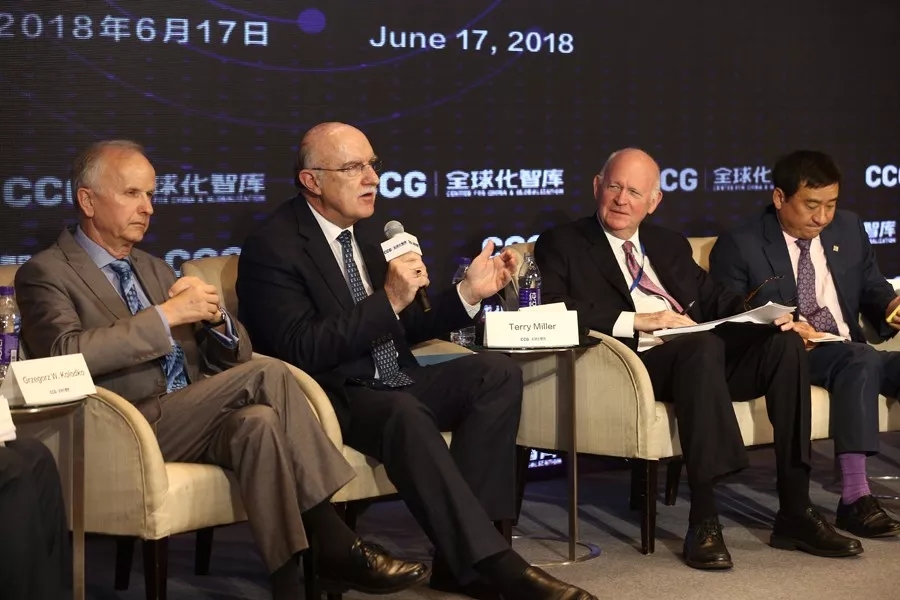

The first themed session of the day explored the new challenges that think tanks face and the contributions they can make in today’s world. Discussants shared ideas on how think tanks can best equip themselves to provide foresighted assessments in an age of heightened risk from protectionism, policy uncertainty, and geopolitics. This included suggestions on how think tanks can break free from conventional modes of thinking, operation, and communication to maximize their contributions to domestic policy, global governance and Track II diplomacy.
Participants: James G. McGann (chair), director of TTCSP, Grzegorz W. Kolodko, former deputy prime minister of Poland and founder and director of TIGER (Transformation, Integration and Globalization Economic Research) at Kozminski University in Warsaw; Terry Miller, director of the Center for International Trade and Economics of The Heritage Foundation and former U.S. ambassador to the UN; Michael Pillsbury, director of the Center on Chinese Strategy at the Hudson Institute; Frank Wu, chair of the Committee of 100; Kent Calder, director of the Edwin O. Reischauer Center for East Asian Studies at Johns Hopkins University; Tim Summers, senior consulting fellow of Asia-Pacific Program at the Royal Institute of International Affairs, Chatham House.
Session two: China and international think tanks – cooperation and innovation
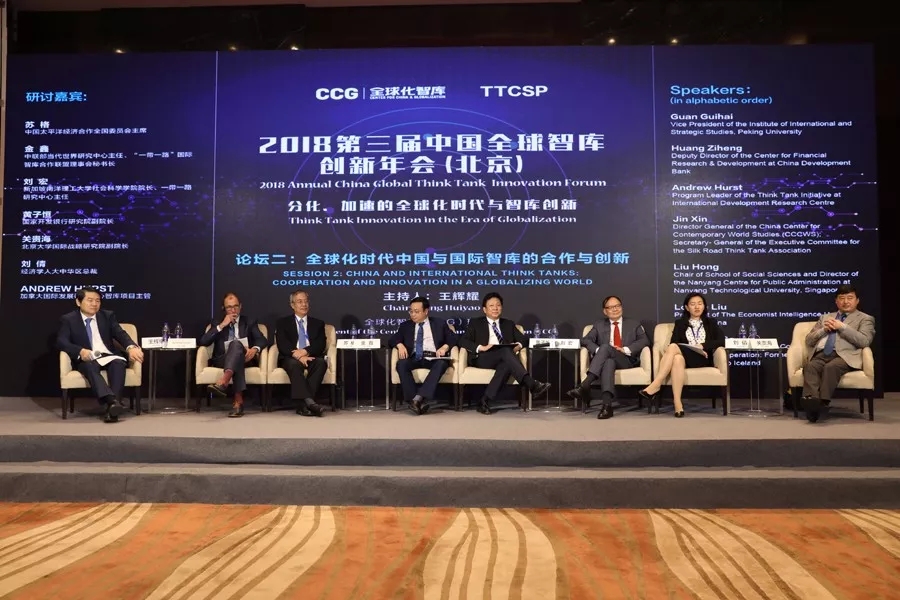

International collaboration is vital for think tanks if they are to fulfil their roles in informing policy and serving as a bridge for international dialogue. The second session explored how Chinese think tanks can better communicate their research findings to the world and help to disseminate and explain Chinese perspectives. Participants also identified areas in which Chinese think tanks can strengthen cooperation with overseas counterparts and talked about the potential for a global network of think tanks to promote international cooperation and to help turn new concepts into reality.
Participants: Wang Huiyao (chair), president of CCG; Jin Xin, director-general of the China Center for Contemporary World Studies (CCCWS) and secretary-general of the Executive Committee for the Silk Road Think Tank Association; Su Ge, chairman of China National Committee for Pacific Economic Cooperation; Liu Hong, director of the Nanyang Centre for Public Administration at Nanyang Technological University, Singapore; Huang Ziheng, deputy head of China Development Bank’s Research Institute; Guan Guihai, associate dean of the Institute of International and Strategic Study at Peking University; Louise Liu, president of the Economist Group, Greater China; and Andrew Hurst, program leader of the Think Tank Initiative at the International Development Research Centre.
Session three: Talent development in the new era

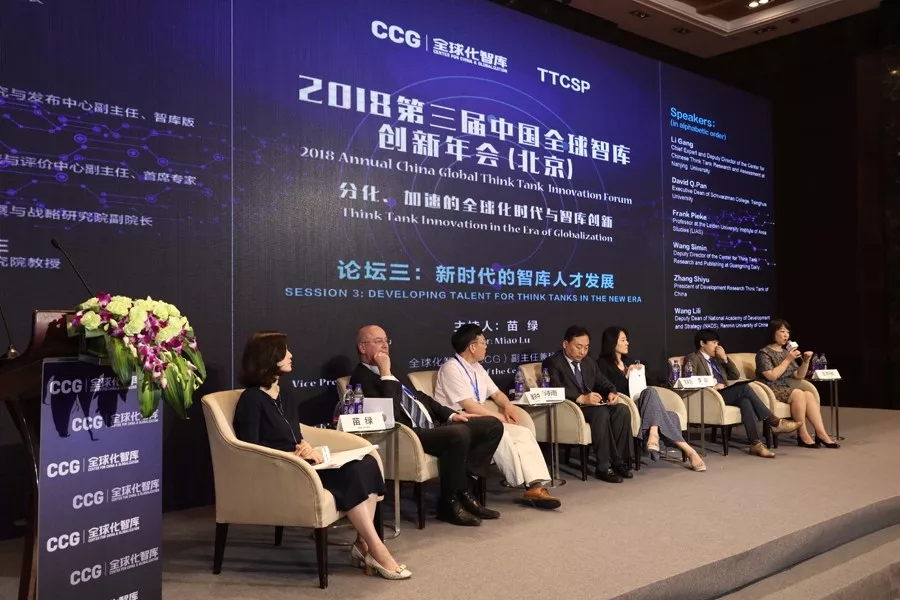
The third session focused on the most important resource for any think tank: human capital. Participants discussed how think tanks can attract the best talent and cultivate internationally-oriented teams fit for the task of addressing globalized issues. Participants also discussed how Chinese think tanks can create a “revolving door” system between thinks tanks and government, such as that which exists in the U.S, to maximize policy impact and optimize the cultivation of top-class talent.
Participants: Miao Lu (chair), CCG vice president; David Q.Pan, executive dean of Schwarzman College, Tsinghua University; Zhang Shiyu, president of Development Research Think Tank of China; Wang Simin, deputy director of the Center for Think Tank Research and Publishing at Guangming Daily; Li Gang, chief expert and deputy director of the Center for Chinese Think Tank Research and Assessment at Nanjing University; Wang Lili, deputy dean of National Academy of Development and Strategy and an associate professor at Renmin University of China; and Franke Pieke, professor of Modern China Studies.
Session four: “The Future is here: Think tank strategies to address disruptive technology”
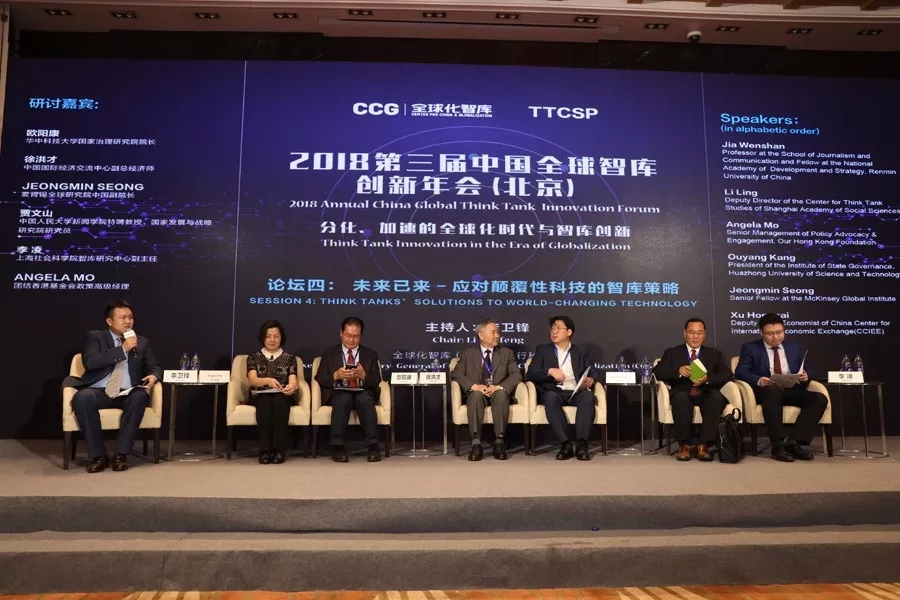
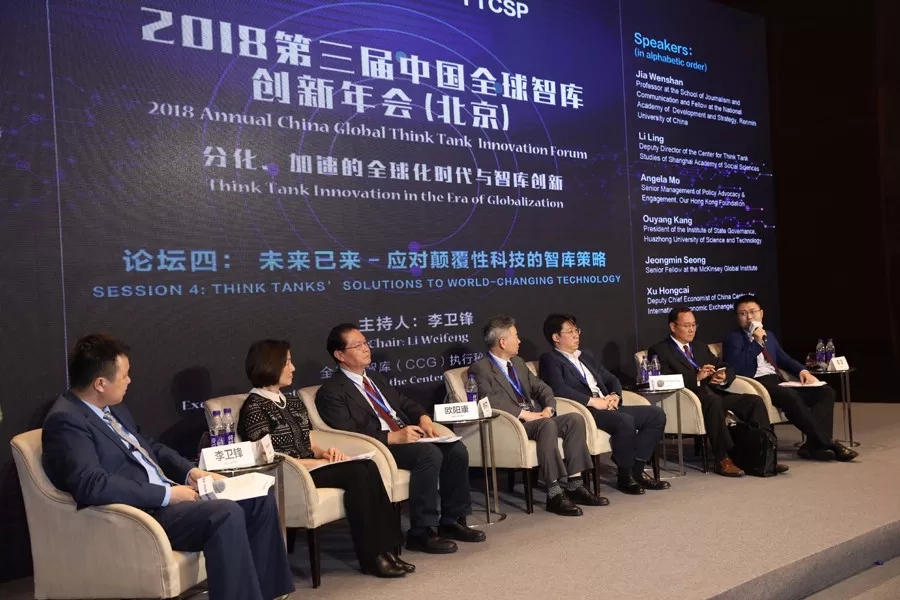
The fourth session of the day addressed the profound impact the information revolution has had on the global economy and society and how think tanks should adapt to this. Experts shared views on how think tanks can make best of use of technology to tailor their communications by medium, target, and context to deliver key messages and maximize impact. Participants also discussed how technological development is impacting the policymaking process and the implications this has for think tank management. The session saw a fruitful sharing of views and suggestions on how think tanks can harness technology rather than become a victim of it.
Participants: Li Weifeng (chair), CCG executive secretary-general; Kang Ouyang, dean of the Institute of State Governance at Huazhong University of Science and Technology (HUST); Xu Hongcai, deputy head economist for China Center for International Economic Exchanges (CCIEE); Jeongmin Seong, senior fellow at the McKinsey Global Institute; Jia Wenshan, specially-appointed professor at Renmin University School of Journalism; Li Ling, deputy director of the Center for Think Tank Studies of Shanghai Academy of Social Sciences; and Angela Mo, senior manager for policy advocacy and engagement, Our Hong Kong Foundation.
Session five: The rise of Asian and Chinese think tanks
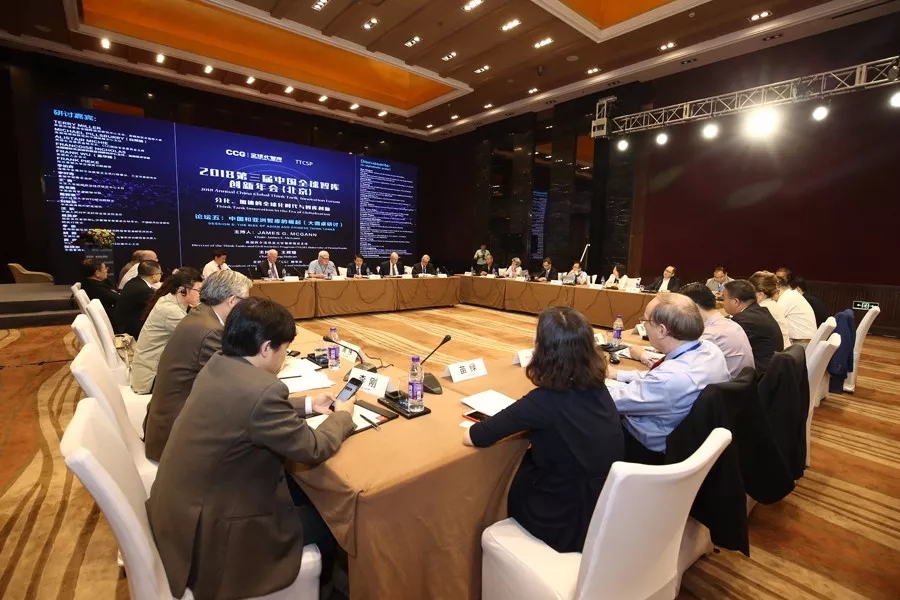
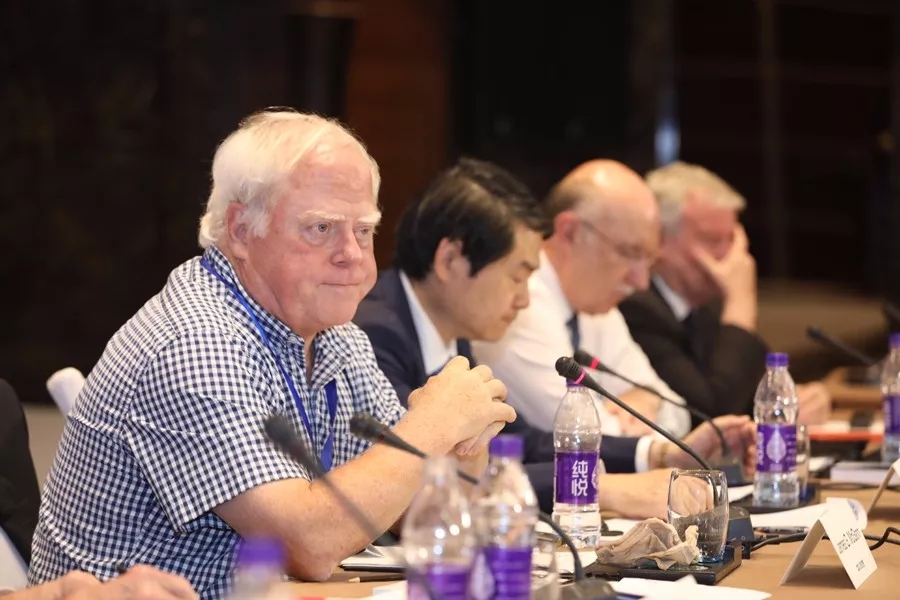
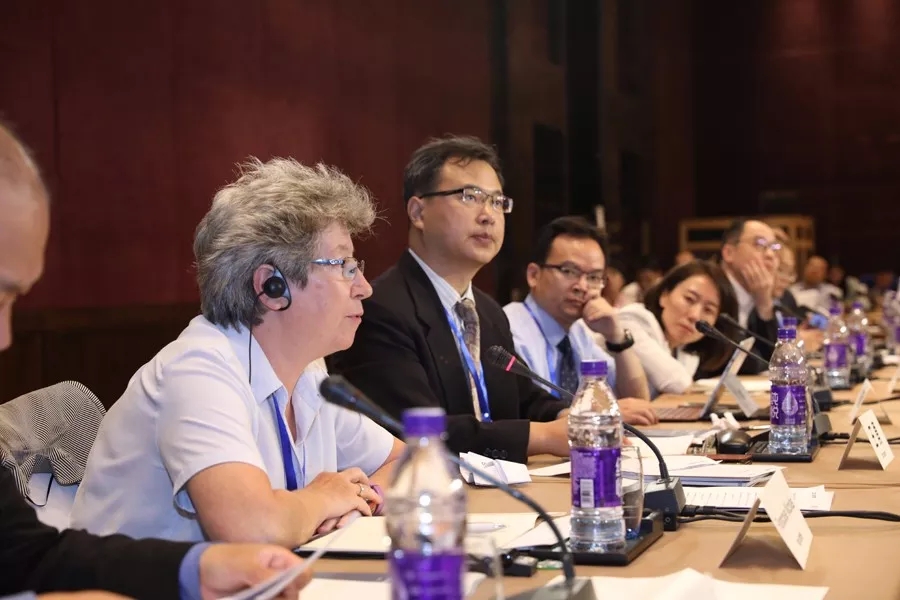
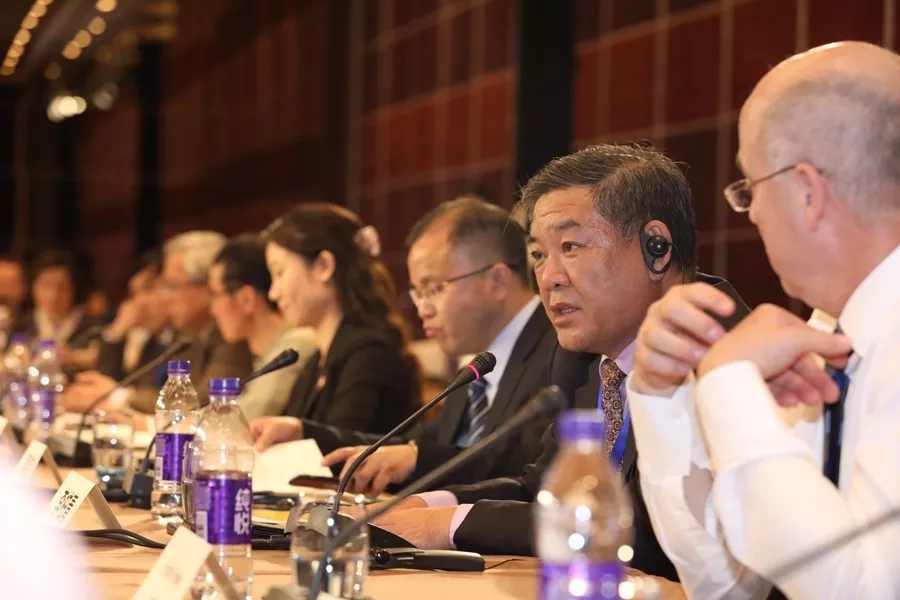
The final session of the day was devoted to a wide-ranging discussion on the rise of Chinese and Asian think tanks, chaired by Wang Huiyao and James G. McGann. The development of Asian think tanks is a notable trend in recent years, and just over a fifth of the world’s 7,815 think tanks are now located in Asia. Participants shared views on how Asian think tanks can strike a balance of becoming more internationalized while also adapting to local conditions so that they are able to work effectively with governments and increase policy impact.
Participants: James G. McGann (co-chair), Wang Huiyao (co-chair), Terry Miller, director of the Center for International Trade and Economics of The Heritage Foundation and former U.S. ambassador to the UN; Michael Pillsbury, director of the Center on Chinese Strategy at the Hudson Institute; Alistair Michie, secretary-general of British East Asia Council and chair of CCG’s International Council; Frank Wu, chair of the Committee of 100; Li Baiqing, executive director of CGE Peace Development Foundation and former deputy mayor of Sanya City; Li (Victor) Yeqing, president of the China Society and CCG non-resident senior fellow; Wang Yong, professor of international political economy at Peking University; Gao Shuguo, Non-Resident Senior Fellow of CCG, director of strategic office at the Ministry of Education’s Education Development Research Center; Tu Xinquan, dean of China Institute for WTO Studies, University of International Business and Economics; Liu Minru, former head of the Division of Scientific Research, Central Bureau of Translation & Compilation; Shen Xin, director of the Department of European & Asian Affairs at The Chinese People’s Association for Friendship with Foreign Countries; Yi Changliang, executive president of the Institute of Modern Chinese Economy and secretary-general of the Expert Council of the Department of National Economic Management at the National Development and Reform Commission; Li Jun, director of the Institute of Trade in Services, Chinese Academy of International Trade and Economic Cooperation, MOFCOM; Hu Wei, director at the Chinese Evaluation Center for Humanities and Social Sciences (CECHSS) of China Academy of Social Sciences; Huang Wei, director of China Center for Collaborative Innovation of Pilot Reform Exploration and Assessment; and Zhang Xiaodong, secretary-general of the China Management Science Society.

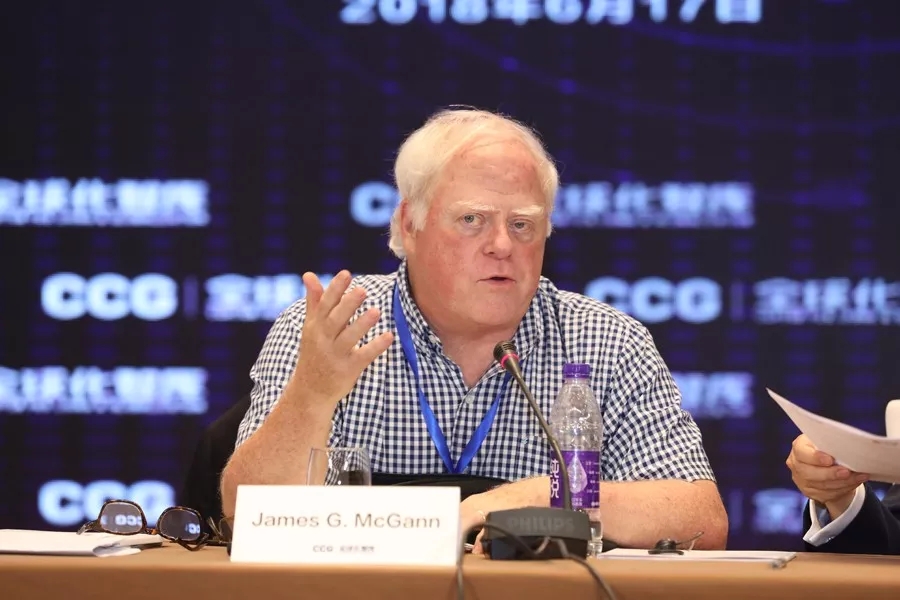
To wrap up the day, James G. McGann and Wang Huiyao gave closing comments in the final session. McGann called to build sustainable partnerships between think tanks for international exchange, while Wang reiterated the importance of continued think tank development to strengthen China’s “soft” infrastructure.

